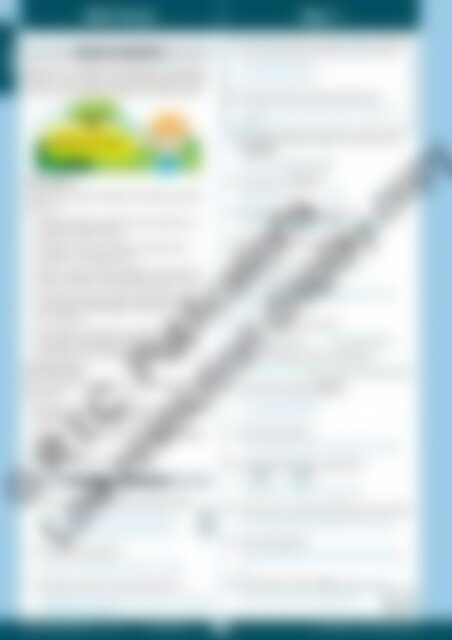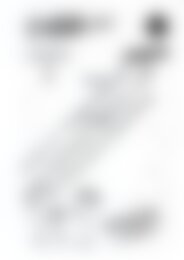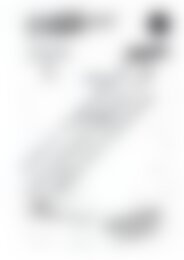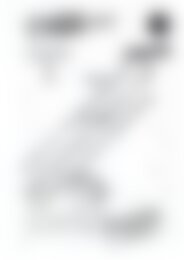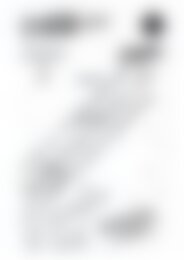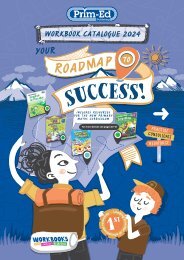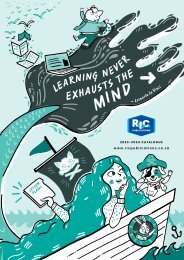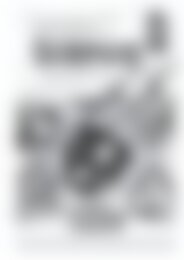6225RB New wave English skills practice Book F.LR watermark
You also want an ePaper? Increase the reach of your titles
YUMPU automatically turns print PDFs into web optimized ePapers that Google loves.
Skill focus<br />
Day 1<br />
Week 7<br />
Types of speech<br />
We often use a mixture of direct speech and reported<br />
speech in our writing to show what someone has said.<br />
Let’s learn more about the difference between these.<br />
Direct speech<br />
‘Where is Tom?’ Ben wondered. ‘He said he would be<br />
here soon’.<br />
• The exact words and order they were spoken are<br />
enclosed in speech marks.<br />
• Exclamation marks or question marks are also<br />
enclosed in the speech marks.<br />
• Usually, a group of words including a verb and the<br />
speaker is added to the beginning, middle or end.<br />
• If the speech comes before the speaker, place a<br />
comma after the final speech mark; e.g. ‘I’m over<br />
here’, said Tom.<br />
• If the speech comes after the speaker, place a<br />
comma after the speaker and a full stop after the<br />
final speech mark; e.g. Tom said, ‘I’m over here’.<br />
Reported speech<br />
Ben wondered where Tom was as he said he would be<br />
there soon.<br />
• Reported speech usually talks about the past, so the<br />
tense and order of the words may change.<br />
• Extra words may also be added, or pronouns might<br />
change.<br />
• No speech marks are used.<br />
Practice questions<br />
1. Tick the sentence that requires speech marks.<br />
Are you walking home today? asked Ella.<br />
Ella asked if I was walking home today.<br />
2. Circle the direct speech.<br />
My mum is picking me up today, I replied.<br />
1. Circle the sentence that requires speech marks.<br />
I’m tired, yawned Dan.<br />
Dan said he was tired.<br />
2. Add speech marks to show what was said.<br />
Dad said, Perhaps you should go to bed early<br />
tonight.<br />
3. Rearrange the letters to spell a word that means<br />
wonderful.<br />
aellmorsuv<br />
4. A synonym for circular is:<br />
argumentative. round. boisterous.<br />
5. The prefix dis (disappear) means:<br />
before. against.<br />
not.<br />
6. The expanded forms of when’s are<br />
or .<br />
7. Circle the correct homophone.<br />
My dog always berries/buries its bone in the<br />
garden.<br />
8. Write the plural of each noun.<br />
sky<br />
day<br />
9. Rewrite the phrase using an apostrophe.<br />
the dog of the boy<br />
10. Circle the meaning of enhance.<br />
to cut a design in glass<br />
to increase the value<br />
11. Circle the preposition.<br />
Joel delivered his party invitations after school.<br />
12. Is the underlined word a preposition?<br />
Yes No<br />
Food was served on the large table.<br />
© R.I.C. Publications<br />
13. Circle the noun phrase identifying who was invited.<br />
Joel invited his best friend Adam to the party.<br />
Low resolution display copy<br />
14. Circle the adjectives.<br />
The happy guests said the party had been great<br />
fun.<br />
3. Add speech marks to show what was said.<br />
Maybe tomorrow? said Ella hopefully. I like having<br />
someone to walk with.<br />
15. Write another word for said.<br />
Everyone said it was a great party.<br />
MY SCORE<br />
<strong>New</strong> <strong>wave</strong> <strong>English</strong> skillls <strong>practice</strong> <strong>Book</strong> F 978-1-922843-59-3 20<br />
R.I.C Publications ® – www.ricpublications.com.au


